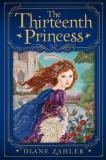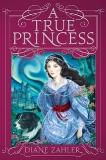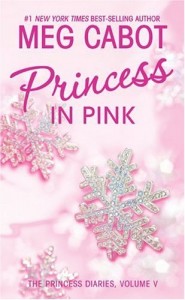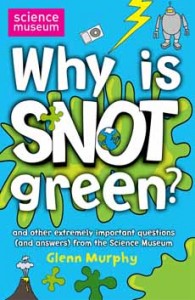Every year one of our local elementary schools hosts an author/illustrator day. This was their ninth year — and the first year I was invited. There were at least fifteen other writers and illustrators there, and we were treated to a huge and fabulous lunch before going with our student escorts to classrooms to give presentations. I  talked about villains and monsters in my books to two fifth-grade classes. The teachers were helpful and eased me through my embarrassed ignorance of smartboards and Powerpoint. The students were attentive and asked great questions, and every single one had an opinion about which of my villains was the scariest.
talked about villains and monsters in my books to two fifth-grade classes. The teachers were helpful and eased me through my embarrassed ignorance of smartboards and Powerpoint. The students were attentive and asked great questions, and every single one had an opinion about which of my villains was the scariest.
Afterward, the authors and illustrators convened in the library, and parents came in with their kids to buy our books. I loved chatting with book-loving kids and parents, meeting new author-friends, and signing books for readers who were thrilled to be there.
The event was beautifully organized and a lot of fun. But something happened that disturbed me. There was a boy, eight or nine years old, who came running over to my table  and announced, “I want a princess book!” I was really pleased — I’ve gotten enthusiastic emails and handwritten notes from a few boys who read my books, but not too many. But his parents were not pleased at all. They tried to steer him to other tables, claiming he wouldn’t like my books, that there were other books he’d enjoy more. The boy was quite insistent: “No, I want one of these princess books.”
and announced, “I want a princess book!” I was really pleased — I’ve gotten enthusiastic emails and handwritten notes from a few boys who read my books, but not too many. But his parents were not pleased at all. They tried to steer him to other tables, claiming he wouldn’t like my books, that there were other books he’d enjoy more. The boy was quite insistent: “No, I want one of these princess books.”
Other parents joined in. One ventured the opinion that maybe it was the idea of knights in armor that interested the boy. Another pointed out that the books might have scenes with scary dragons that would be exciting and adventurous enough for him. The boy’s expression became more and more uncertain, but he kept repeating, “I want a princess book!”
At this point, I did something that I’m not proud of. I’d been listening to all this, unsure of what to do but pretty certain that I should maintain a low profile. Then I said — to the parents — “There are boy characters in each of the books who go with the princesses on their adventures.”
This wasn’t enough to convince them. The boy left without the books (though with a few princess bookmarks I managed to give to him). I was left with a bundle of reactions that I still haven’t completely sorted out.
There were so many things wrong with the scenario:
♦The boy wanted a princess book and wasn’t afraid to say so. But the adults, by trying to distract him, make excuses for his desire, and eventually refuse it, made him feel uncertain and ashamed. For wanting to read a book. A children’s book. A book about a princess.
♦I allowed myself to become part of the wrong. By pointing out that the books include boy characters, I showed tacit approval of the parents’ belief that the kid shouldn’t read princess books, or books that only have girls in them. I hate that I did that, because I don’t approve at all.
♦The parents judged my books by their covers. Because each cover features a princess,  they automatically assumed that there would be nothing inside them that might — or should — appeal to a boy. Why should a book cover with a girl on it be only for female readers? Why shouldn’t a boy read a book about a princess?
they automatically assumed that there would be nothing inside them that might — or should — appeal to a boy. Why should a book cover with a girl on it be only for female readers? Why shouldn’t a boy read a book about a princess?
I love my book covers. I think they’re absolutely beautiful. Yes, maybe the publisher intended them to appeal predominantly to girls. Maybe they could have instructed the cover artist to include the boy characters in each story on the cover. But should they have to? Is there something wrong with books about princesses that show princesses on the covers?
There is an online movement called Let Books be Books, discussed here in the Guardian, that protests the idea of gendered marketing in children’s books. I wholeheartedly agree that no book should be labeled or marketed “For Girls” or “For Boys.” But this article, by the literary editor of The Independent on Sunday, takes the protest one step too far by stating that the editor will no longer review certain books. She writes:
Any Girls’ Book of Boring Princesses that crosses my desk will go straight into the recycling pile along with every Great Big Book of Snot for Boys. If you are a publisher with enough faith in your new book that you think it will appeal to all children, we’ll be very happy to hear from you. But the next Harry Potter or Katniss Everdeen will not come in glittery pink covers. So we’d thank you not to send us such books at all.
That’s a lazy, unthinking position. It lumps all books with glittery pink covers together. It 
 assumes that only girls will like certain books, and only boys will like certain other books, creating exactly the kind of compartmentalizing that it claims to revile. And worst, it excuses the critic from the far more difficult and important task of censuring the social mindset that allows people to assume that books
assumes that only girls will like certain books, and only boys will like certain other books, creating exactly the kind of compartmentalizing that it claims to revile. And worst, it excuses the critic from the far more difficult and important task of censuring the social mindset that allows people to assume that books 
 with pink or sparkly covers with girls on them are for girls only (and books about snot are only for boys). It focuses on the symptom, not the disease. It marginalizes my books and other books like mine in exactly the same way that boy’s parents did.
with pink or sparkly covers with girls on them are for girls only (and books about snot are only for boys). It focuses on the symptom, not the disease. It marginalizes my books and other books like mine in exactly the same way that boy’s parents did.
The boy who wanted a princess book was being true to who he was. The rest of us — parents, reviewers, me — are the ones who were false. We did the wrong thing, and for that boy, the repercussions may be far greater than we know.
I love that you wrote this piece, and that you both felt your discomfort in dealing with this boy and realized that there are more supportive approaches. My book, Jacob’s New Dress, explores the idea that all sorts of things–clothes, toys, and books, whether masculine or feminine–might appeal to ALL kids. And that the goal for us adults is to help kids be confident in who they are, whether their identities fit in with the norm or are different from that norm.
My son is something of a princess boy, and I am eager to show him your books.
Thanks for the response, Sarah. I hope it was clear, though, that my discomfort was entirely with the parents (and with myself), not with the boy. Your book sounds great — and much needed. And I really hope your son enjoys my books!